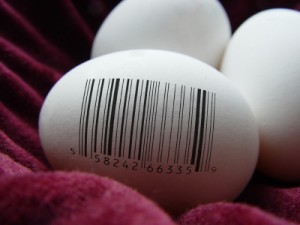 Illegal clinics are luring high school and college-age girls in China with the promise of large payments for their eggs. The procedure can damage the girls’ health and future child-bearing, and the clinics are offering no legal or medical help if complications ensue.
Illegal clinics are luring high school and college-age girls in China with the promise of large payments for their eggs. The procedure can damage the girls’ health and future child-bearing, and the clinics are offering no legal or medical help if complications ensue.
For clinics operating on the black market, there is little incentive to inform women of possible problems. “How can we tell them about the hazards to get eggs?” one “egg agent” told reporters. “We have to lure them.”
Ten to fifteen percent of Chinese couples struggle with infertility. Mainland China prohibits commercial egg donation. In an attempt to skirt the law, illegal fertility clinics characterize the donors as “volunteers” and refer to the payment as a “subsidy for nutrition.”
The procedures frequently occur in hospitals, and “egg agents” count on bribing their way out of trouble.
“The hospitals usually wink at us egg agents,” one told a Global Times’ reporter posing as a potential donor.
“It’s nothing new in today’s China; the human body has become a commodity,” women’s studies professor Ai Xiaoming said.
Ai added that without regulation, “the rights of children and women, as well as the sex imbalance in our country, will never be properly addressed.”
The government’s one-child policy has exacerbated the country’s sex imbalance. Couples desiring sons may take harsh measures to avoid having daughters.
Some illegal fertility clinics offer comprehensive packages including eggs, surrogacy, and abortion if the baby turns out to be a girl.
If the underground fertility industry in China treats babies as commodities, to be discarded if unsatisfactory, it affords no more respect to the women whose eggs are its essential product. An “egg agent” told Chinese television that donors were expected to be educated, healthy, and attractive – preferably five feet and three inches or taller, and light skinned.
The clinics advertise on the street and on universities’ online discussion boards. Payments go up to 30,000 yuan (nearly $5,000). One woman said she would use the money to pay off her credit card bills.
The donors do not sign a contract, and have no legal recourse if things go wrong. Egg donation carries significant risks, as the donors are given treatments to stimulate their ovaries to release multiple eggs in one cycle. This can lead to ovarian hyperstimulation syndrome, which causes chest pain and bloating.
“In some cases, it could cause bleeding or even necrosis, meaning she will become infertile,” warns Hong Kong obstetrician Dr Suen Sik-hung.
“Only the most serious cases might result in death,” says family planning clinic director Chen Jianming.
Fertility clinics are not the only ones with an interest in a supply of human oocytes – scientists are also eager to obtain them for embryonic stem cell research. Chinese law prohibits human cloning for reproduction, but allows for “therapeutic cloning” in which the human life created for research purposes must be destroyed.
A Chinese researcher said that oocytes could be easily obtained from IVF clinics without special consent, claiming that egg donation was like blood donation in this regard.
In China, regulations exist on paper for both the fertility industry and the field of regenerative medicine but are relatively easy to circumvent in practice. Nevertheless, the country’s one-child policy remains a cautionary tale demonstrating that increasing governmental oversight is not always the best answer.



